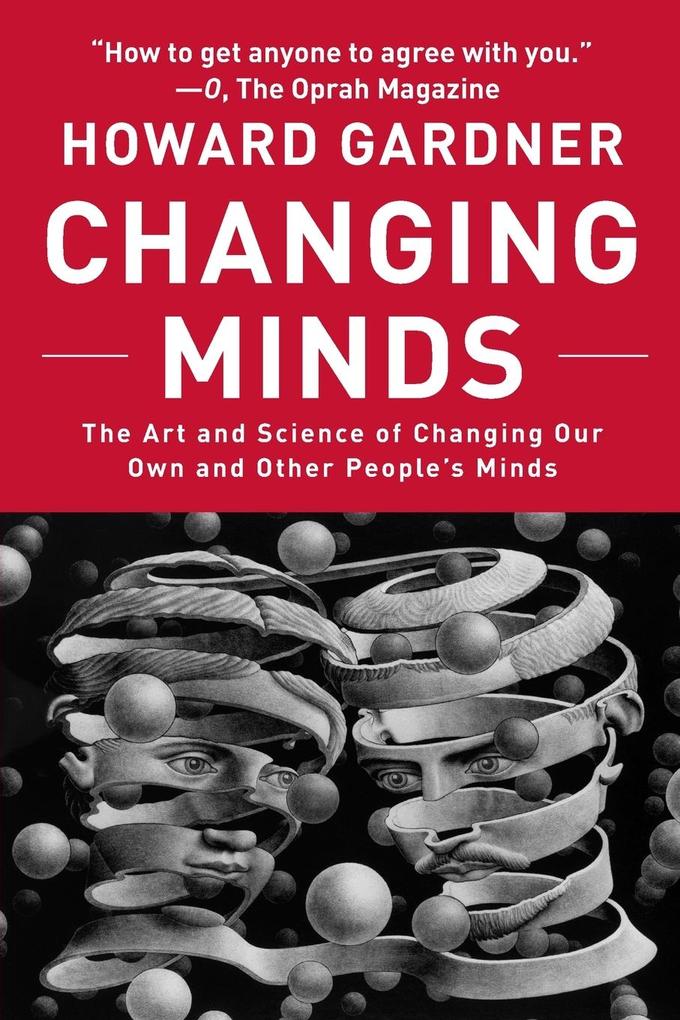
Zustellung: Fr, 01.08. - Mi, 06.08.
Versand in 3 Wochen
VersandkostenfreiIn "Changing Minds", Gardner examines one of the most puzzling and most examined questions of human psychology: why it's so difficult to change our own minds and each other's and what happens when we do actually change our minds. Drawing on his work on multiple intelligence and case studies of public leaders (Thatcher, Mandela, Clinton, and Bush), scientists and intellectuals (Darwin, Einstein, Freud, Whittaker Chambers), and artists (Picasso, Graham, and Cage), Gardner describes seven powerful factors at work in all cases of mind change. Finally, he examines changes of mind in six arenas, such as large-scale changes involving both homogeneous and heterogeneous groups, changes in formal settings, changes brought about by "climate changers" such as artists and intellectuals, mind changes in small groups, and mind change between intimates.
Whether one is attempting to change the mind of a spouse, a nation or a corporation, an eminent Harvard psychologist offers an original framework for understanding exactly how to do it.
Inhaltsverzeichnis
1. The Contents of the Mind
2. The Forms of the Mind
3. The Power of Early Theories
4. Leading a Diverse Population
5. Leading an Institution: How to Deal with a Uniform Population
6. The Creative Geniuses Change Minds Indirectly-Through Science, Scholarly Breakthroughs, and Works of Art
7. Mind Changing in a Formal Setting
8. Mind Changing Up Close
9. Changing One's Own Mind
10 Epilogue: The Future of Mind Changing
Notes
Index
About the Author
Produktdetails
Erscheinungsdatum
01. September 2006
Sprache
englisch
Seitenanzahl
272
Reihe
Leadership for the Common Good
Autor/Autorin
Howard Gardner
Verlag/Hersteller
Produktart
kartoniert
Gewicht
279 g
Größe (L/B/H)
209/141/22 mm
ISBN
9781422103296
Entdecken Sie mehr
Pressestimmen
Named one of the "Highlights from the Decade" in strategy+business magazine.
Bewertungen
0 Bewertungen
Es wurden noch keine Bewertungen abgegeben. Schreiben Sie die erste Bewertung zu "Changing Minds" und helfen Sie damit anderen bei der Kaufentscheidung.








